Risperdal 1 mg Tablet 30's
MRP ₹93.5
(Inclusive of all Taxes)
₹11.2 Cashback (12%)
Selected Pack Size:30
30 ₹82.3
(₹2.74 per unit)
In Stock
10 ₹823.9
(₹82.39 per unit)
In Stock
Provide Delivery Location
Online payment accepted
 Prescription drug
Prescription drugWhats That
Composition :
Manufacturer/Marketer :
Consume Type :
Expires on or after :
Return Policy :
NPPA :
About Risperdal 1 mg Tablet
Risperdal 1 mg Tablet belongs to the group of medicines called 'antipsychotics' used to treat schizophrenia. It is also used alone or in combination with other medicines to treat mania or mixed episodes (mania and depression) in adults and children above 10 years with bipolar disorder. Risperdal 1 mg Tablet is also used to treat behavioural problems in children aged 5 to 16 years with autism.
Risperdal 1 mg Tablet contains 'Risperidone' that works by blocking the effects of chemical messengers in the brain (i.e. dopamine and serotonin), thereby helps in improving mood, behaviour and thoughts. Risperdal 1 mg Tablet elevates the symptoms of the disease and prevents them from coming back.
Take Risperdal 1 mg Tablet as prescribed by the doctor. In some cases, you may experience certain common side-effects such as sleepiness, vomiting, constipation, abdominal pain, nausea, dizziness, dry mouth, and fatigue. Most of these side-effects do not require medical attention and will resolve gradually over time. However, you are advised to talk to your doctor if you experience these side-effects persistently.
Consult your doctor if you are pregnant or planning for pregnancy. Avoid breastfeeding while on treatment with Risperdal 1 mg Tablet . Risperdal 1 mg Tablet may cause dizziness, so do not drive or operate machinery unless you are alert. Avoid consuming alcohol along with Risperdal 1 mg Tablet as it could lead to increased dizziness. Keep your doctor informed about your health condition and medications to rule out any side-effects/interactions.
Uses of Risperdal 1 mg Tablet
Directions for Use
Key Benefits
Risperdal 1 mg Tablet belongs to the group of medicines called antipsychotics used to treat schizophrenia. It is also used alone or in combination with other medicines to treat mania or mixed episodes (mania and depression) in adults and children above 10 years with bipolar disorder. Risperdal 1 mg Tablet is also used to treat behavioural problems such as irritability, aggression, self-injury, and mood changes in children aged 5 to 16 years with autism. Risperdal 1 mg Tablet works by blocking the effects of chemical messengers in the brain (i.e. dopamine and serotonin), thereby helps in improving mood, behaviour and thoughts. Risperdal 1 mg Tablet elevates the symptoms of the disease and prevents them from coming back.
Storage
Drug Warnings
Do not take Risperdal 1 mg Tablet if you are allergic to any of its contents. Inform your doctor if you have diabetes, high blood pressure, heart problems, low white blood cell count, seizures, breast cancer, low bone mineral density, Parkinson's disease, dehydration, phenylketonuria (accumulation of amino acid-phenylalanine in the body), liver or kidney problems. Rise slowly from sitting or lying position as Risperdal 1 mg Tablet may cause orthostatic hypotension (sudden lowering in blood pressure leading to dizziness on standing). Consult your doctor if you are pregnant or planning for pregnancy. Avoid breastfeeding while on treatment with Risperdal 1 mg Tablet .
Diet & Lifestyle Advise
- Maintain a healthy diet and exercise regularly.
- Regularly attend therapy sessions.
- Perform meditation and yoga.
- Follow a regular sleep pattern.
- Avoid smoking and alcohol consumption.
- Learn about your condition, understand the risk factors and follow the doctor’s treatment plan.
Side Effects of Risperdal 1 mg Tablet
- Sleepiness
- Vomiting
- Constipation
- Abdominal pain
- Nausea
- Dizziness
- Dry mouth
- Fatigue
Habit Forming
Therapeutic Class
All Substitutes & Brand Comparisons
RX
RISNIA MD 1MG TABLET
Cipla Ltd
₹18.5
(₹1.67 per unit)
39% CHEAPERRX
Restonorm 1 mg Tablet 15's
Alteus Biogenics Pvt Ltd
₹35
(₹2.1 per unit)
23% CHEAPERRX
Respidon 1 Tablet 10's
Torrent Pharmaceuticals Ltd
₹25.5
(₹2.3 per unit)
16% CHEAPER
Author Details
We provide you with authentic, trustworthy and relevant information
FAQs
Drug-Drug Interactions Checker List
- ARIPIPRAZOLE
- LORAZEPAM
- DIAZEPAM
- ALPRAZOLAM
- CITALOPRAM
- DULOXETINE
- FLUOXETINE
- ESCITALOPRAM
- TRAZODONE
- SERTRALINE
- DIPHENHYDRAMINE
- HYDROXYZINE
- DIVALPROEX SODIUM
- GABAPENTIN
- CLONAZEPAM
- LAMOTRIGINE
- PREGABALIN
- OXYCODONE
- TRAMADOL
- ALBUTEROL
- QUETIAPINE
Special Advise
- While taking Risperdal 1 mg Tablet , you may become more sensitive to extreme temperatures (like too hot or too cold). Hence, it is advisable to avoid getting too cold or too hot or becoming dehydrated, especially during summer. Drink plenty of fluid and water to cope with this condition.
- If you are due to undergo surgery or dental procedure, inform the doctor that you are taking Risperdal 1 mg Tablet .
- Consult your doctor immediately if you have suicidal tendencies, such as thoughts of harming or killing yourself.
Disease/Condition Glossary
Schizophrenia: It is a condition in which the person may see, hear or feel things that are not there, believe things that are not true, feel unusually suspicious or confused. Symptoms include hallucinations, delusions, thought disorders, movement disorders, disorganised thinking, loss of interest, lack of emotions, etc.
Manic depression (bipolar disorder): Bipolar disorder, also known as manic depression or bipolar disease, is a mental health disorder associated with episodes of mood swings ranging from manic highs to depressive lows. Symptoms of manic episodes include high energy, loss of touch with reality, and reduced need for sleep. Symptoms of depressive episodes include low motivation, low energy, and loss of interest in daily life.
Autism: It is a developmental diability which causes repetitive behaviour, problems with communication, and difficulty interacting with others.

Have a query?
Alcohol
Safe if prescribed
Avoid consumption of alcohol while taking Risperdal 1 mg Tablet as it may cause increased dizziness. Risperdal 1 mg Tablet may also increase the effects of alcohol.
Pregnancy
Consult your doctor
Please consult your doctor if you have any concerns regarding this; your doctor will prescribe only if the benefits outweigh the risks.
Breast Feeding
Consult your doctor
Risperdal 1 mg Tablet may pass into the breastmilk, so it is not safe to breastfeed while taking Risperdal 1 mg Tablet . Consult your doctor if you have any concerns.
Driving
Safe if prescribed
Risperdal 1 mg Tablet may cause tiredness, dizziness and sleepiness. Do not drive or operate machinery if you experience these symptoms.
Liver
Consult your doctor
Dose adjustment may be needed in patients with liver impairment. Please consult your doctor if you have a liver impairment or any concerns regarding this.
Kidney
Consult your doctor
Dose adjustment may be needed in patients with kidney impairment. Please consult your doctor if you have kidney impairment or any concerns regarding this.
Children
Safe if prescribed
Risperdal 1 mg Tablet should be given to children only if prescribed by the doctor. The safety and effectiveness of Risperdal 1 mg Tablet in children below 13 years with schizophrenia, below 10 years with bipolar disorder, and below 5 years with autistic disorder have not been established.


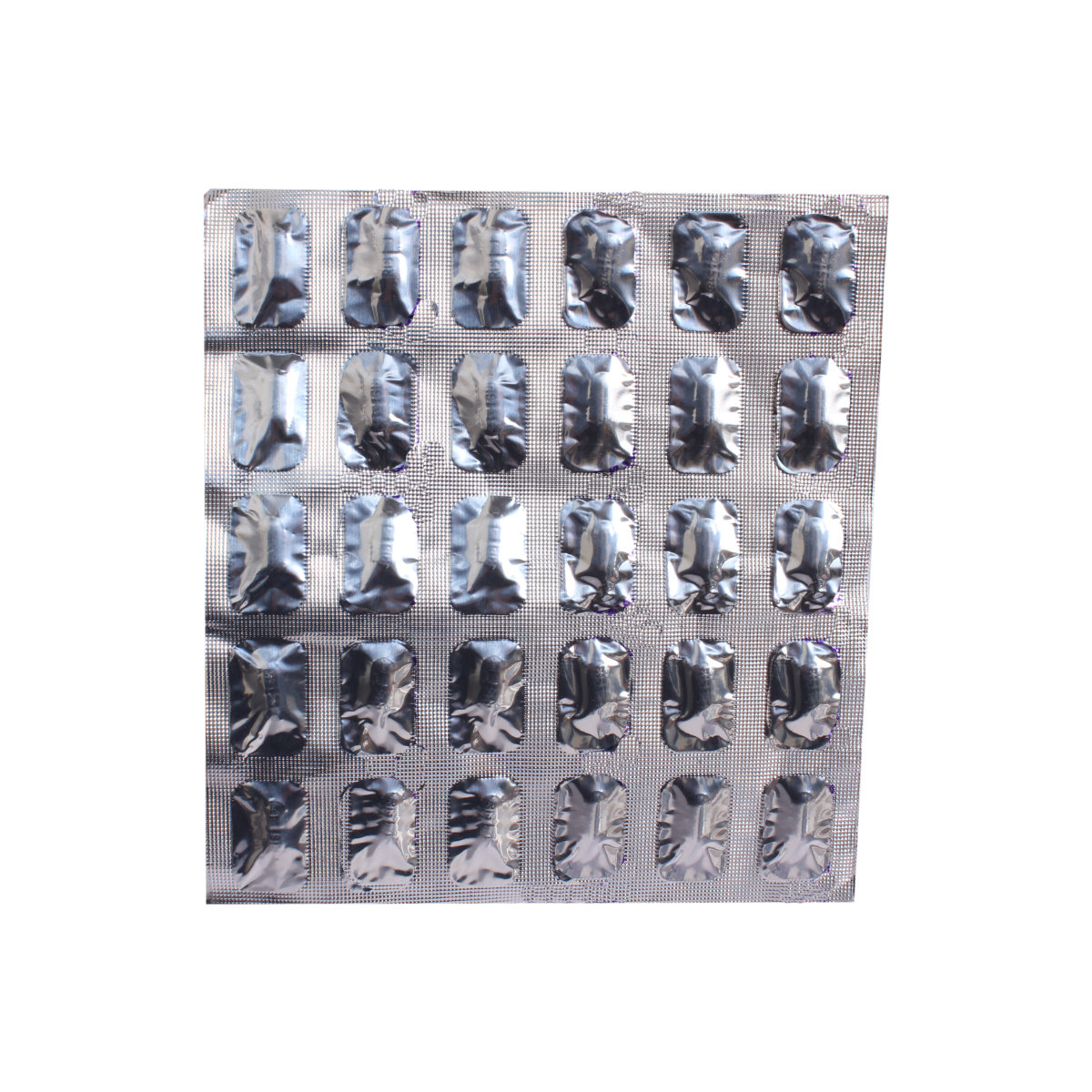



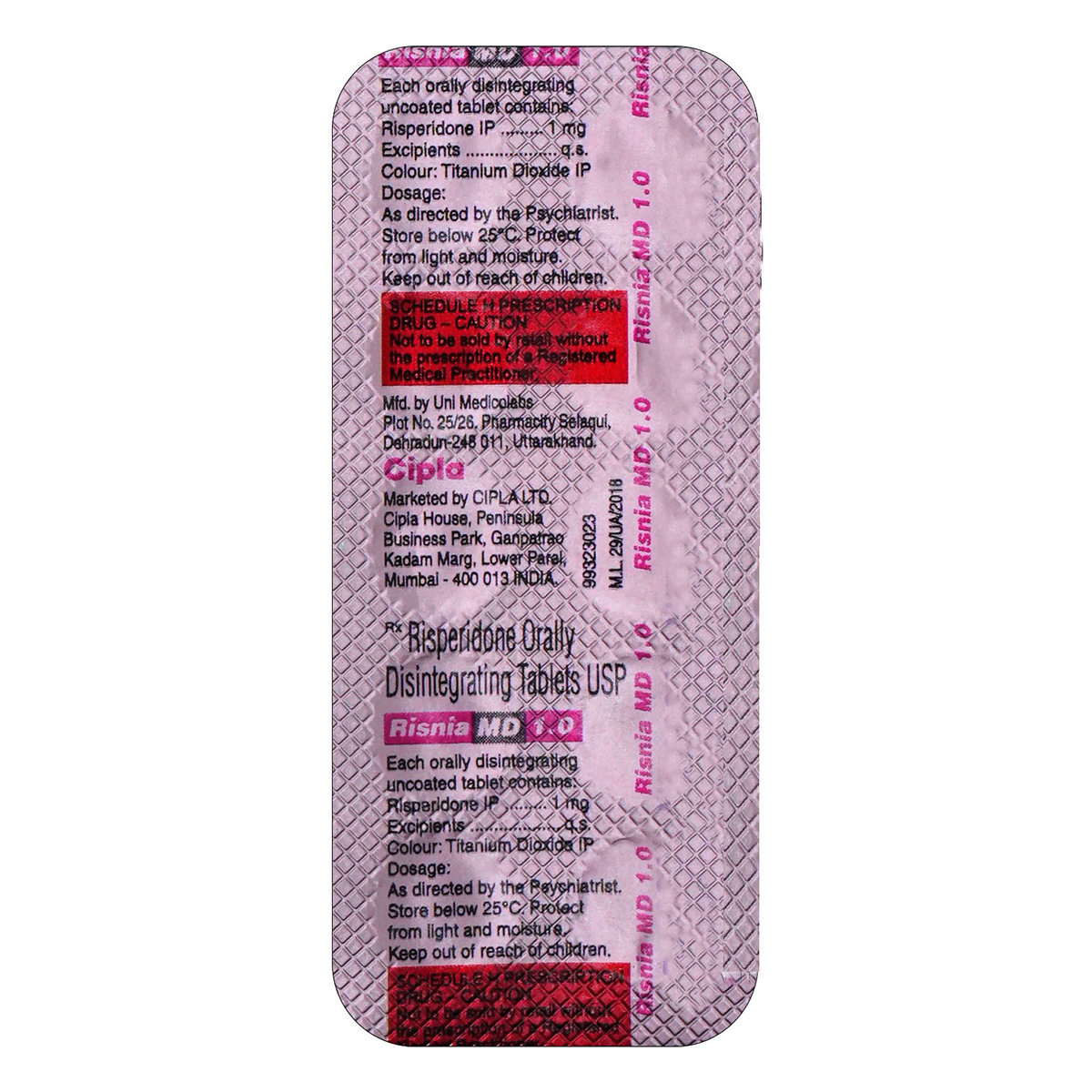

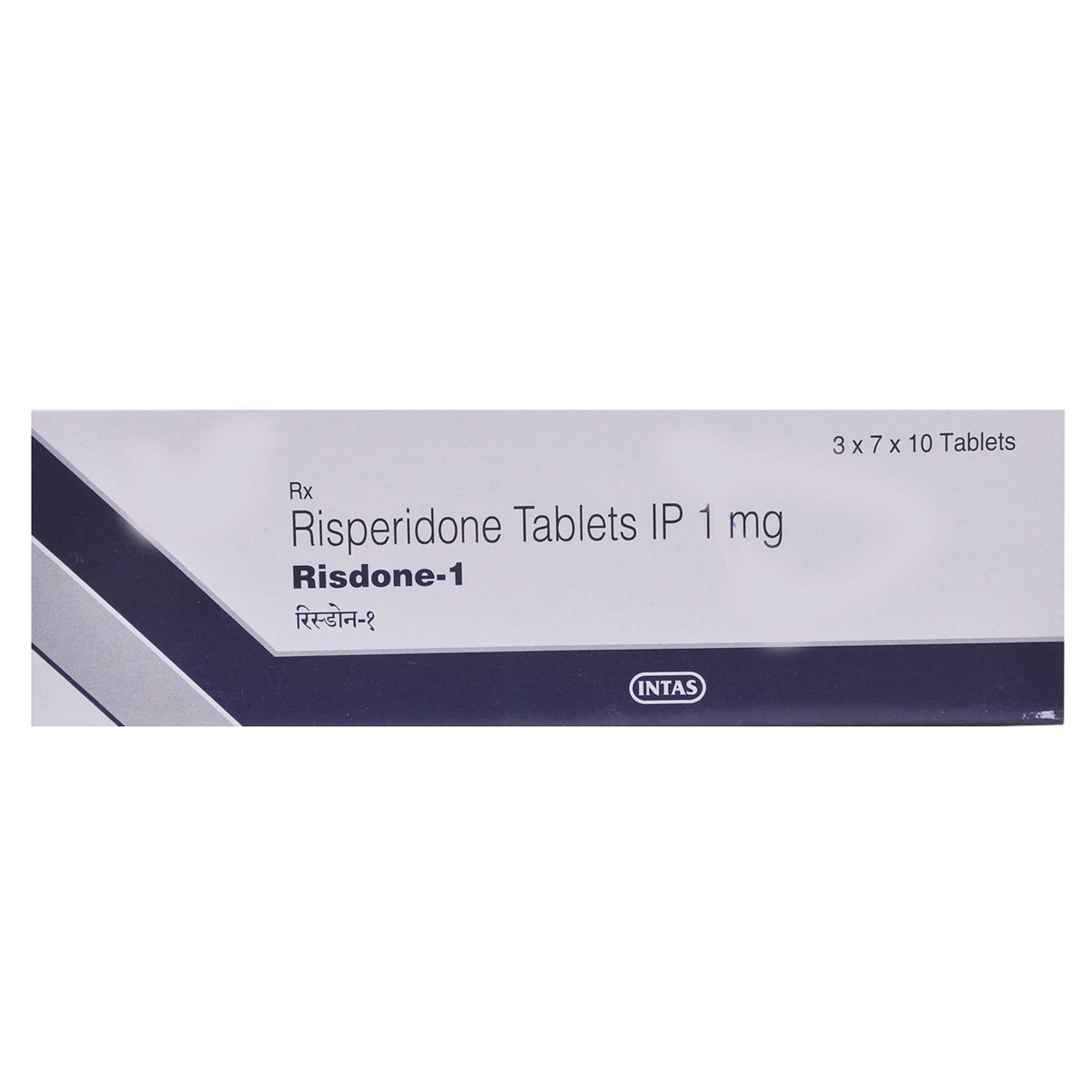
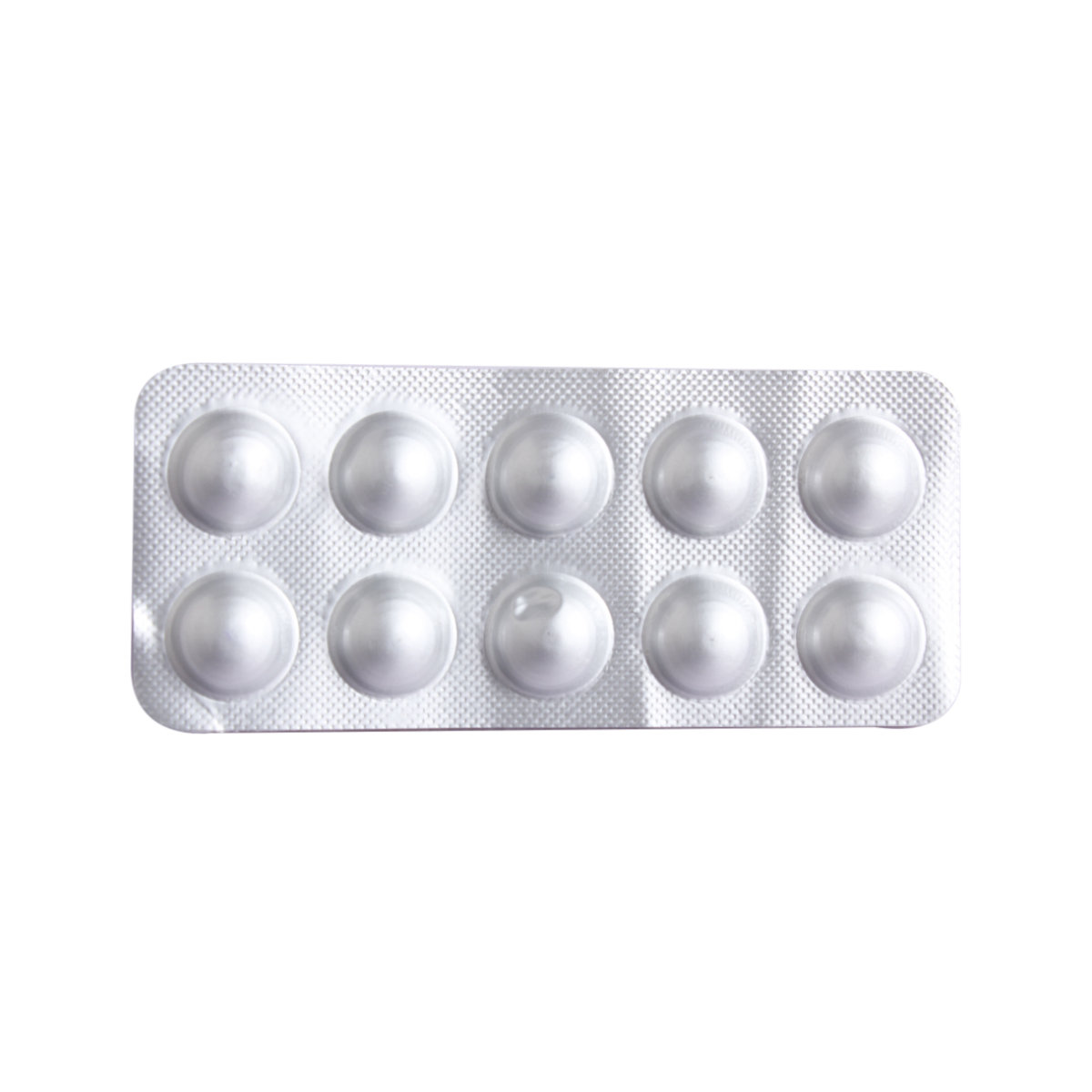
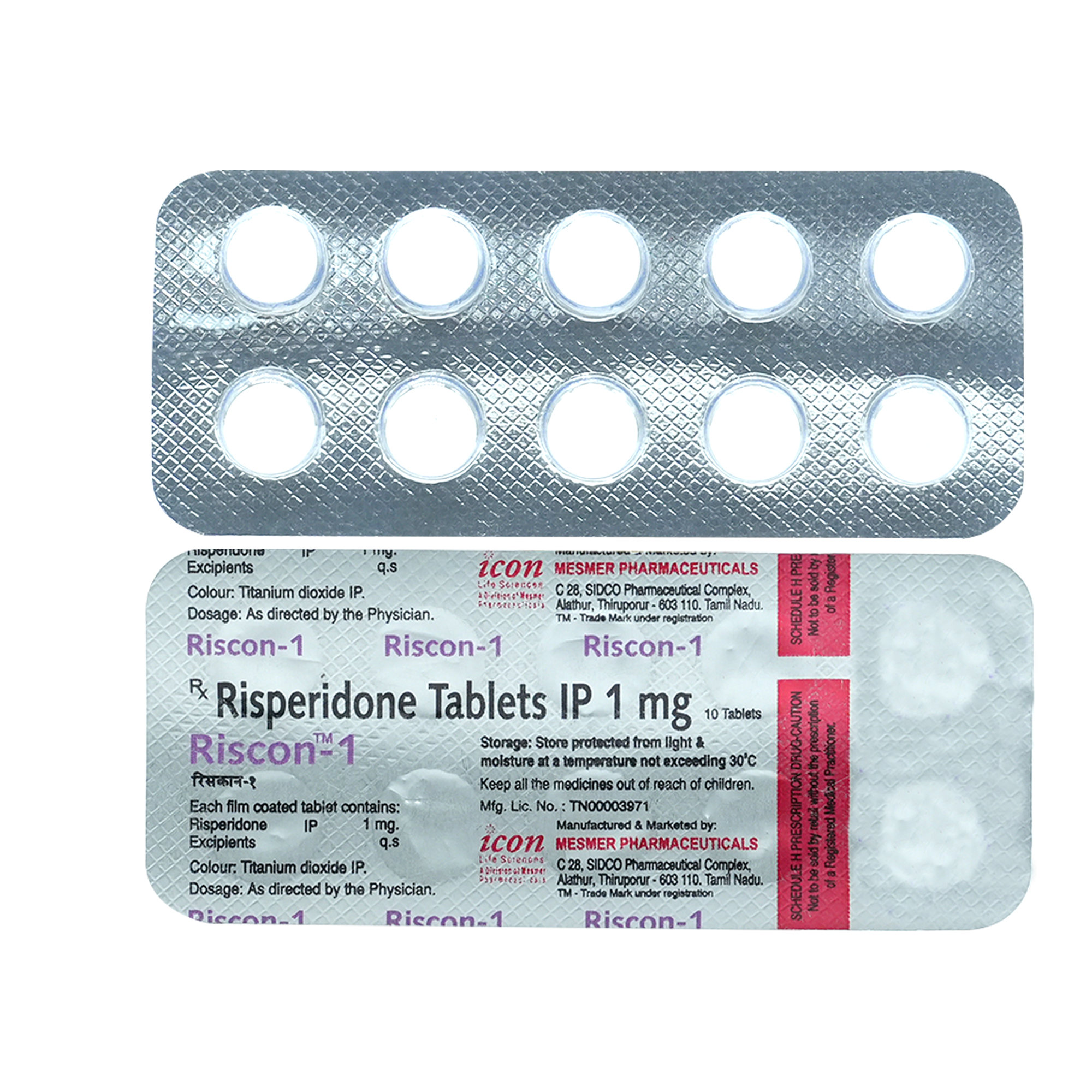
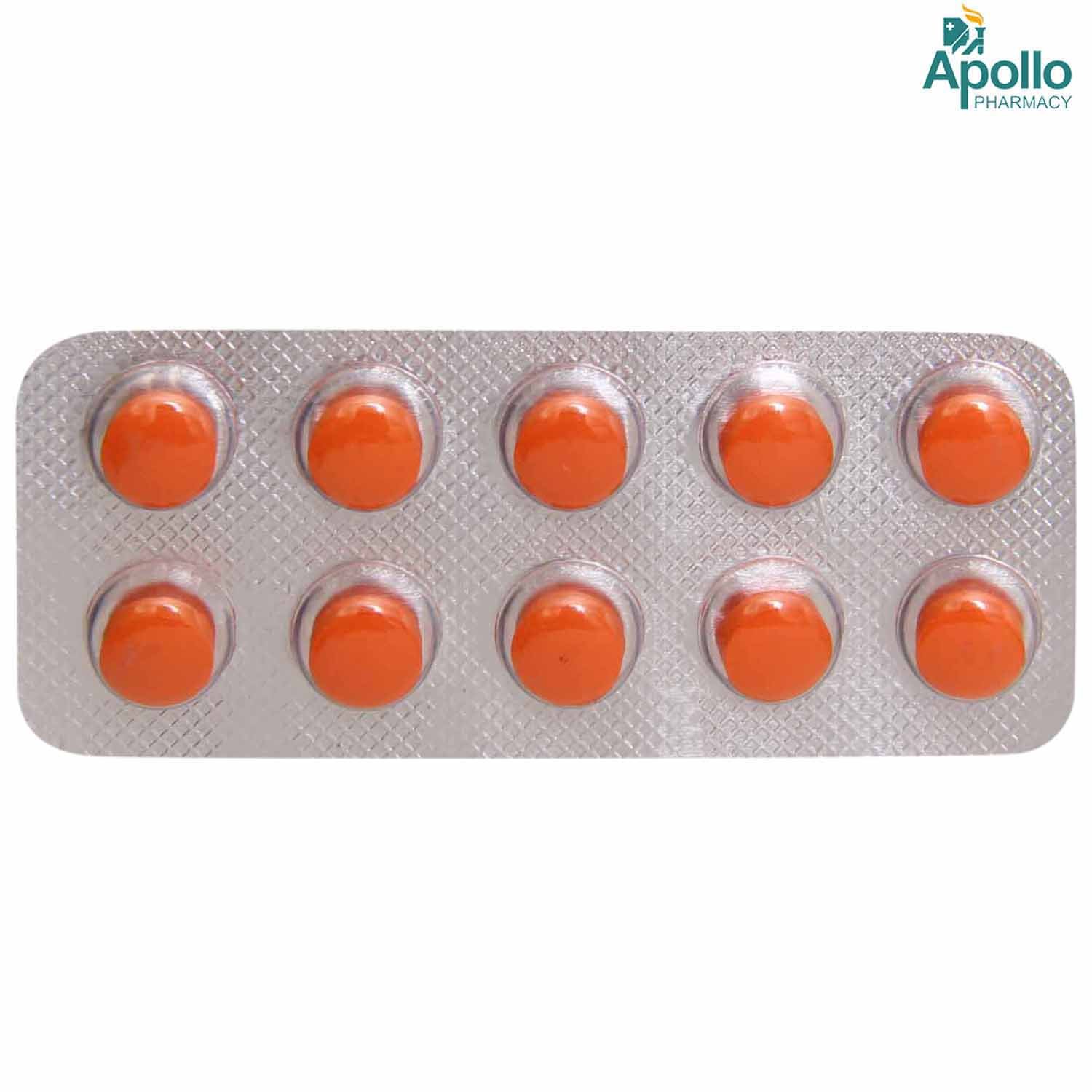

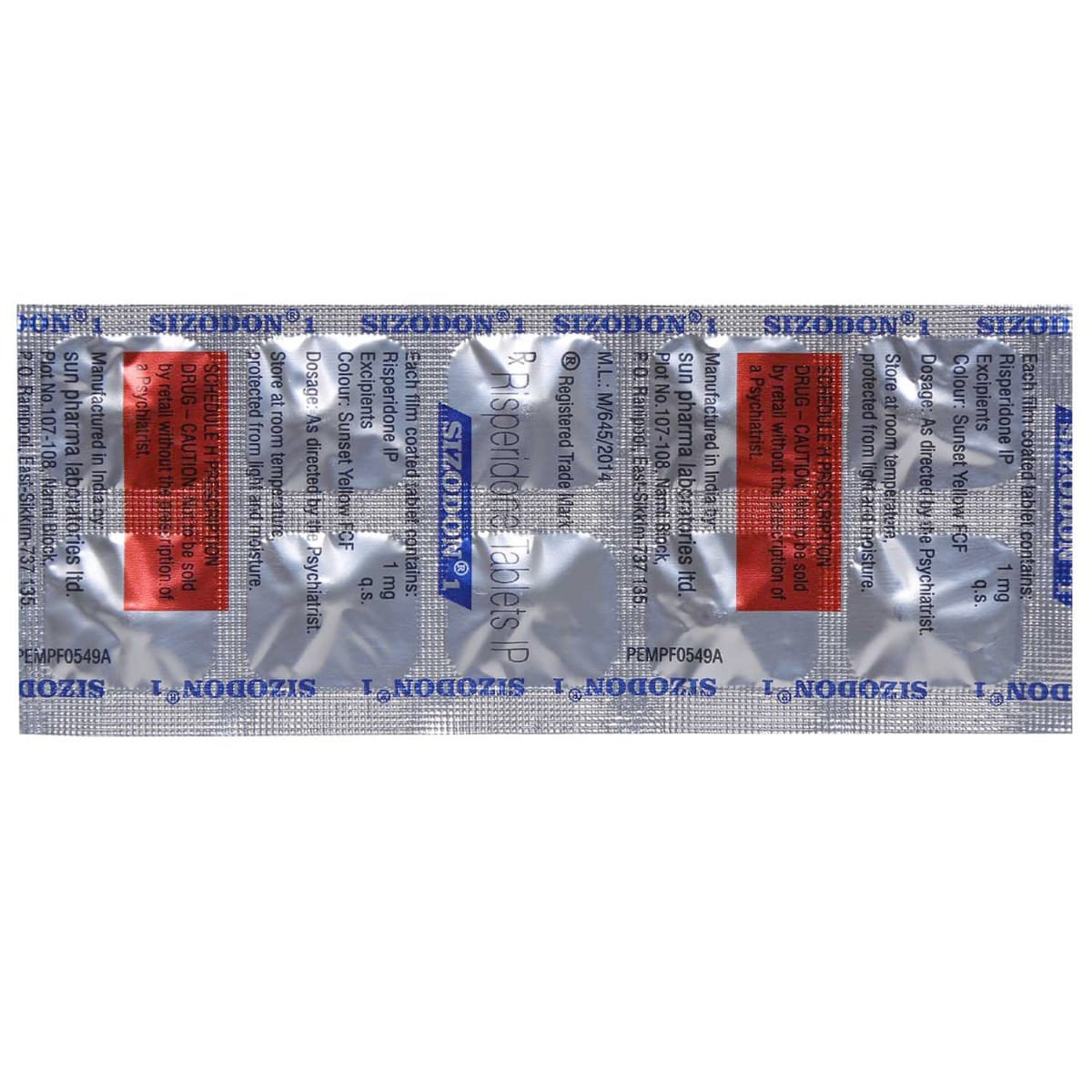
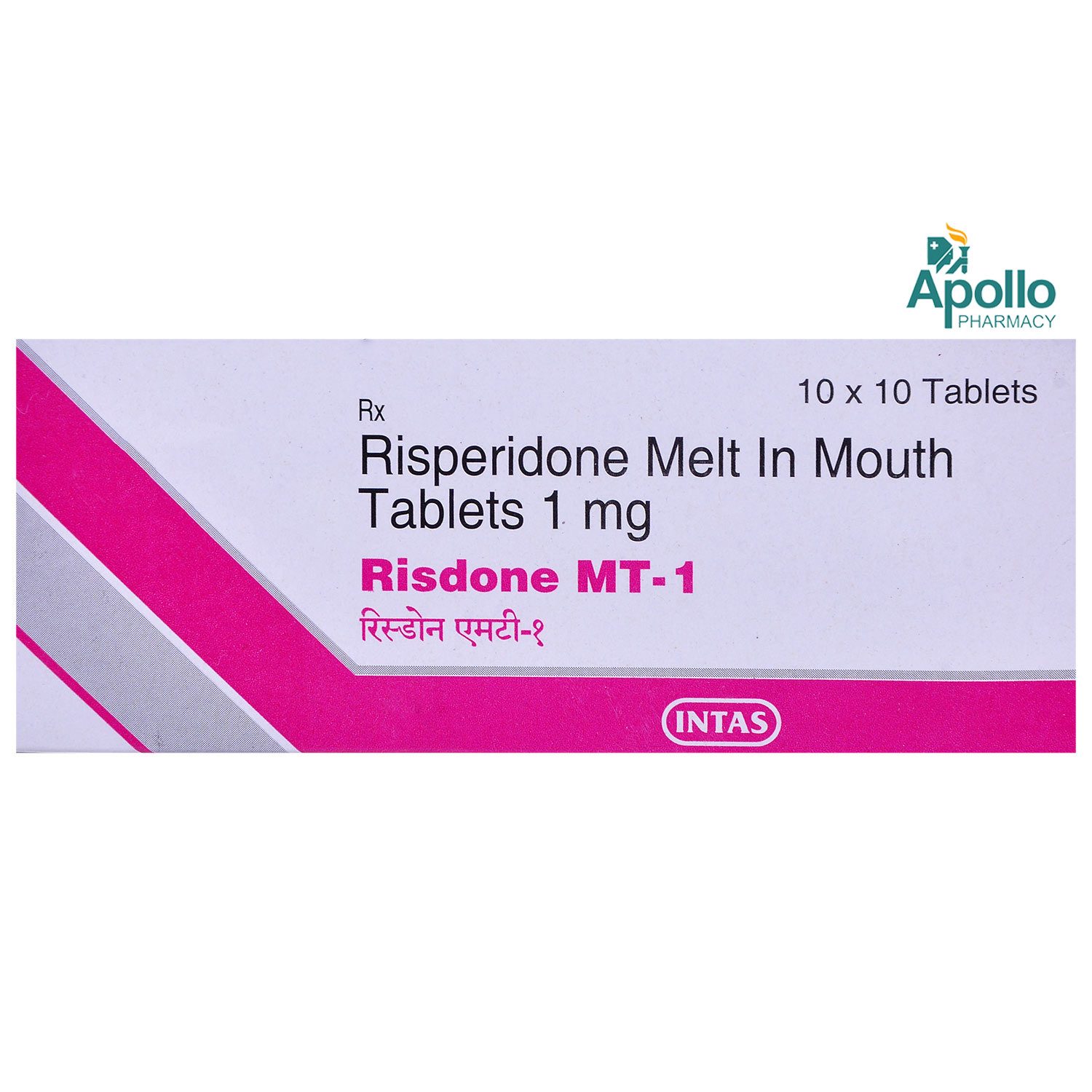
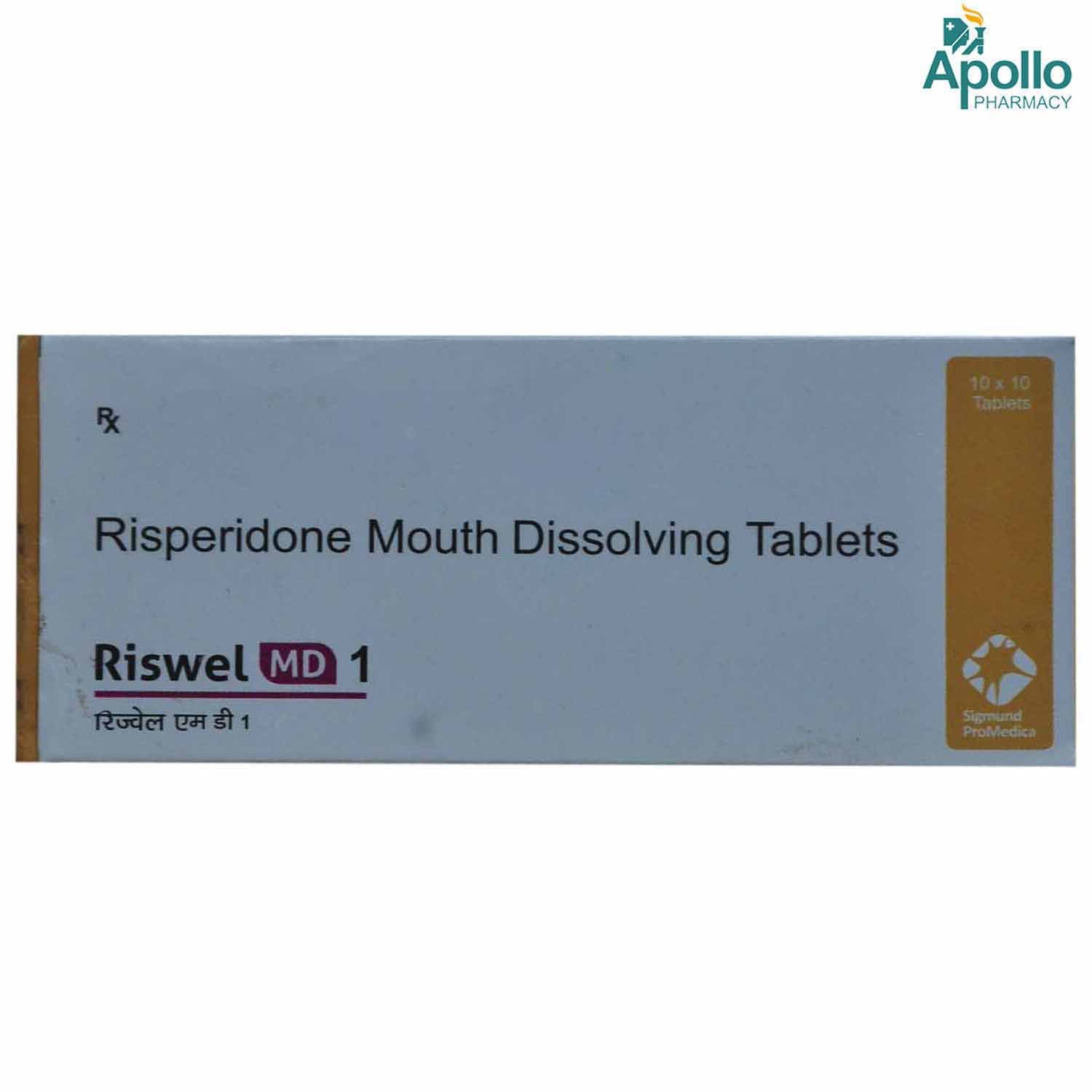
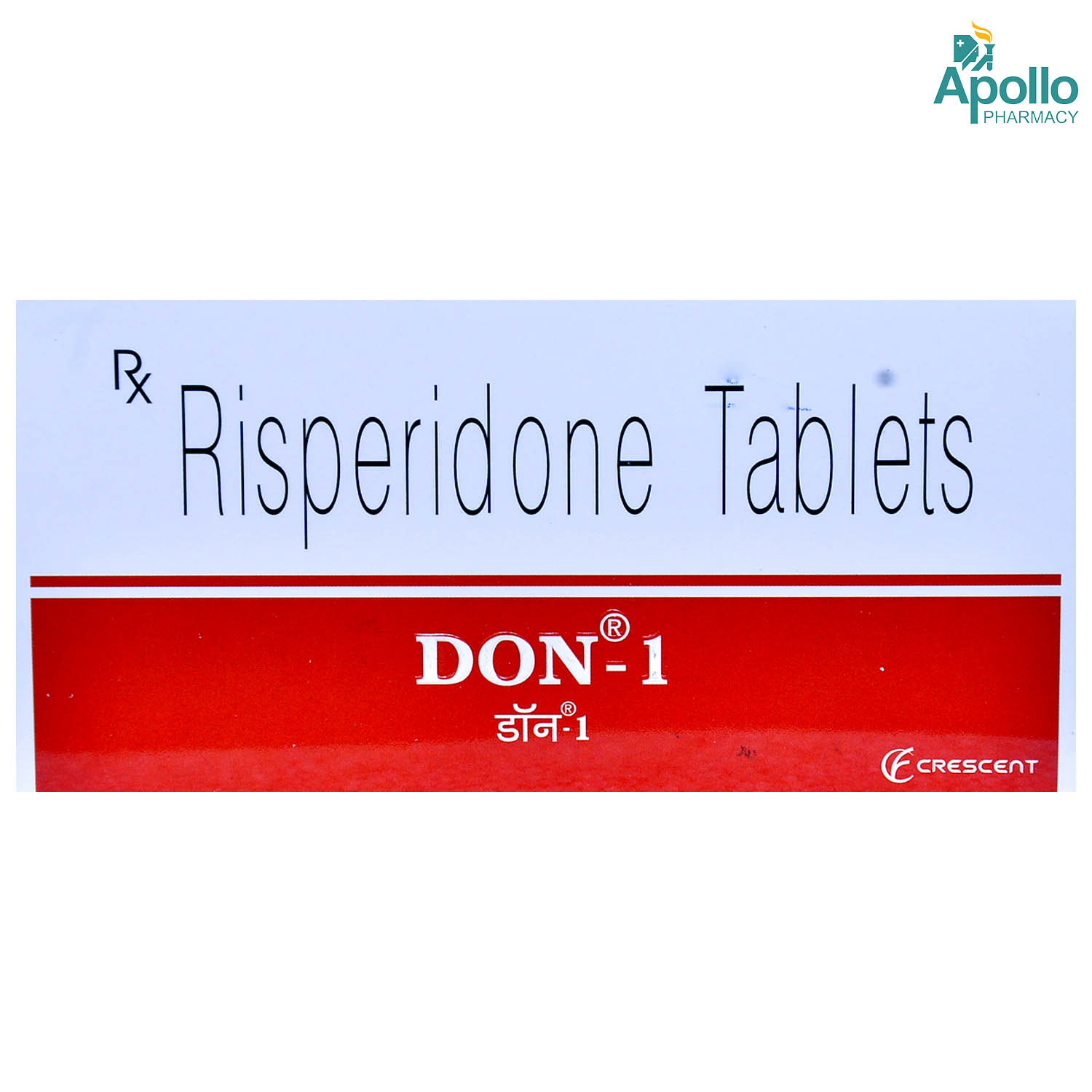

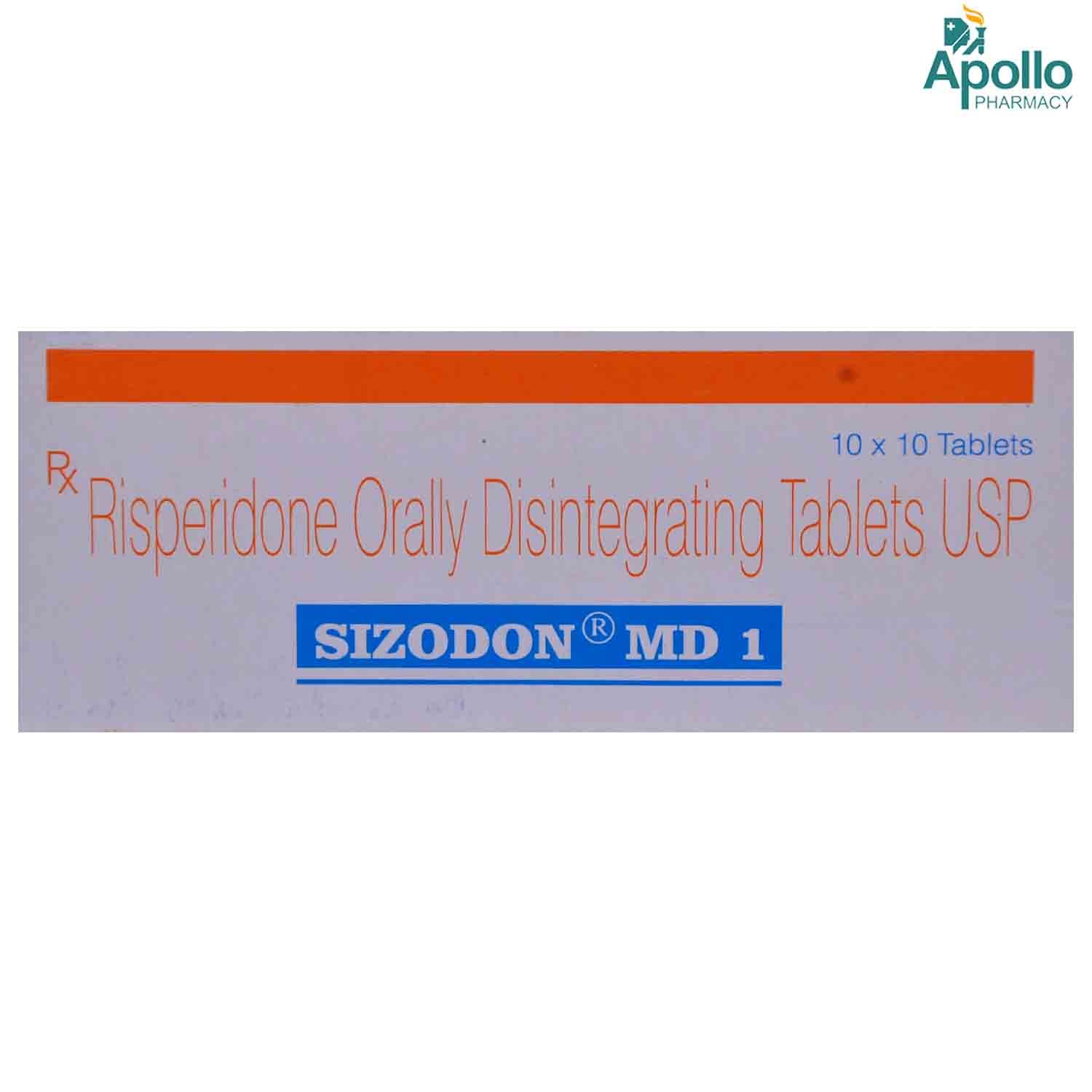


_0.jpg?tr=q-85)

